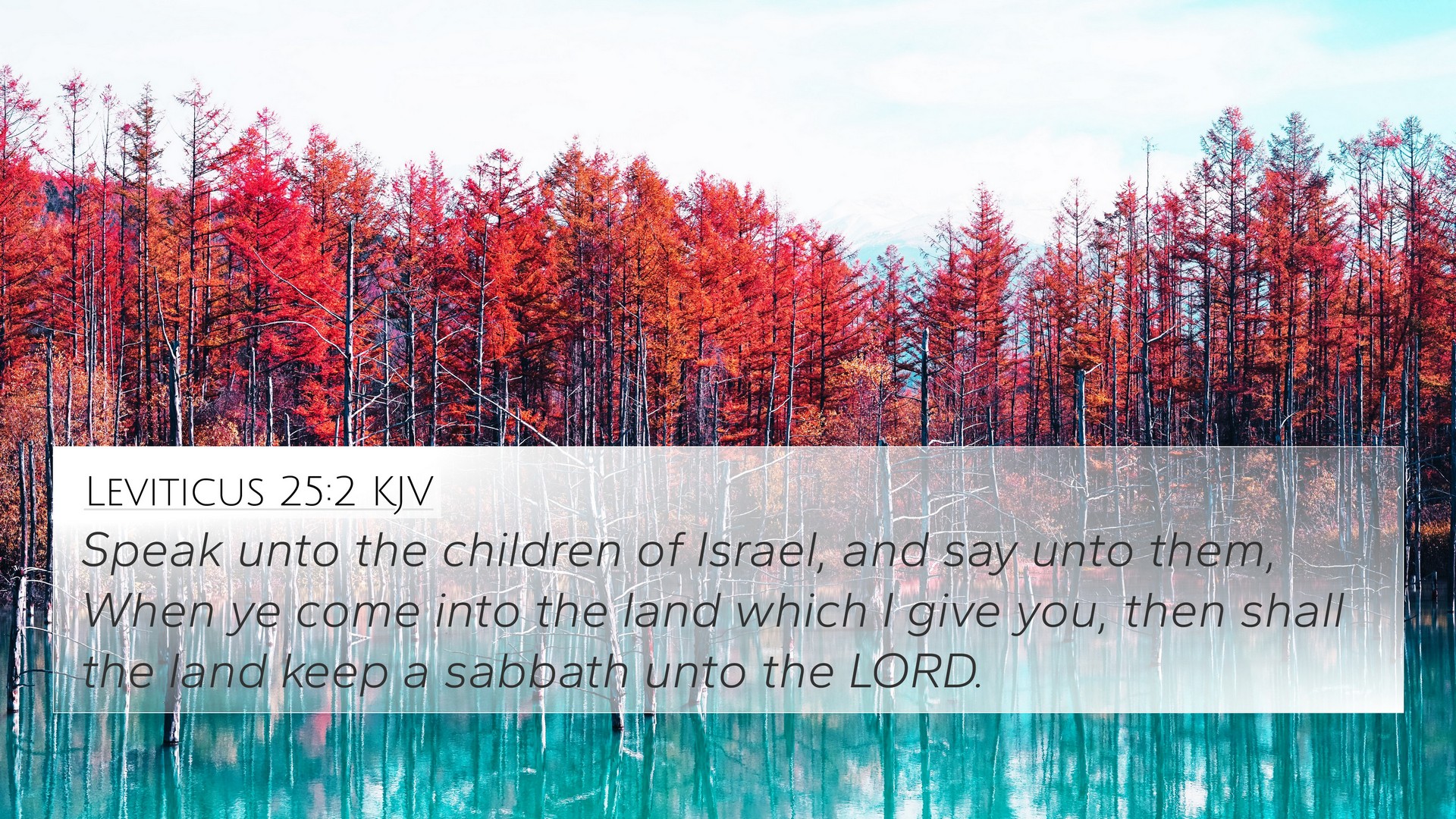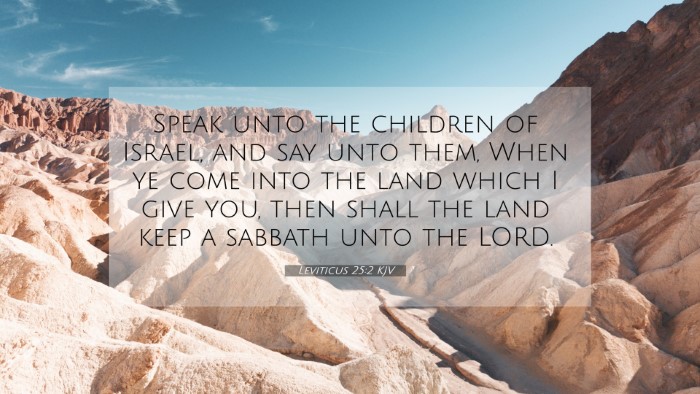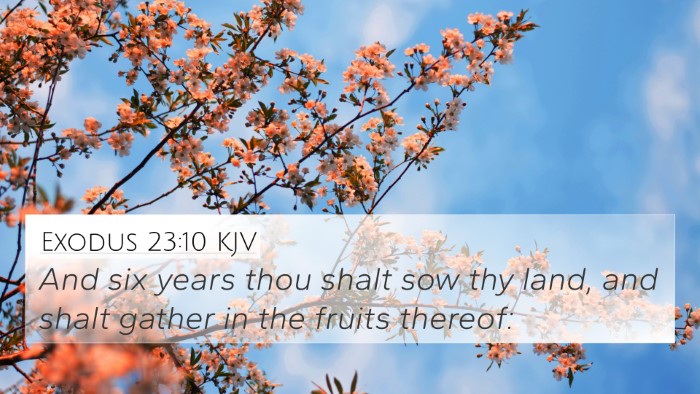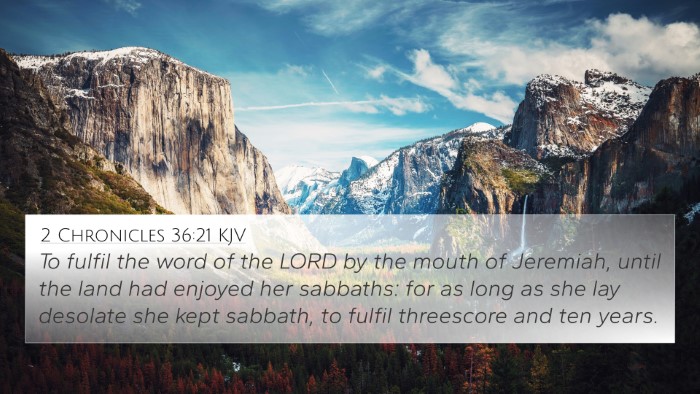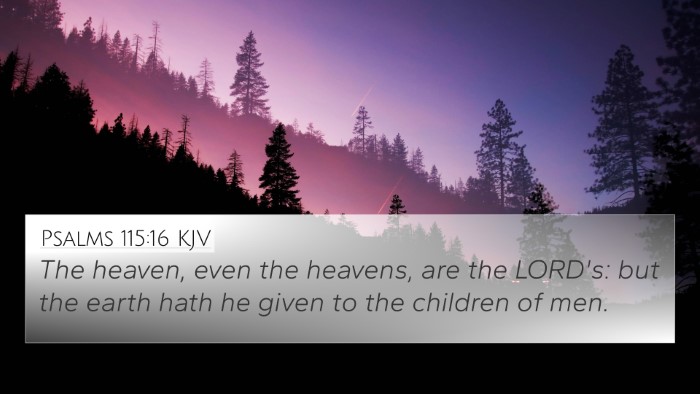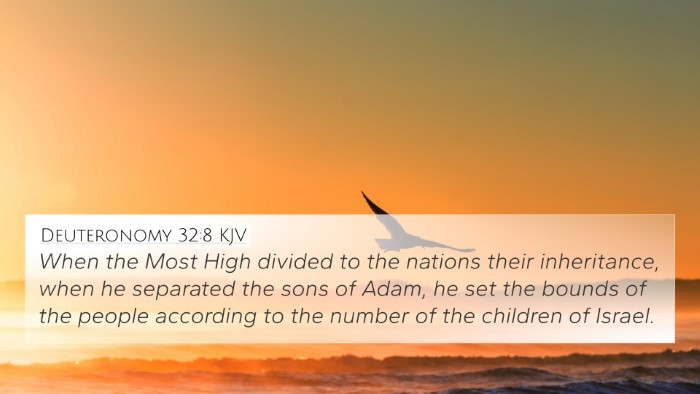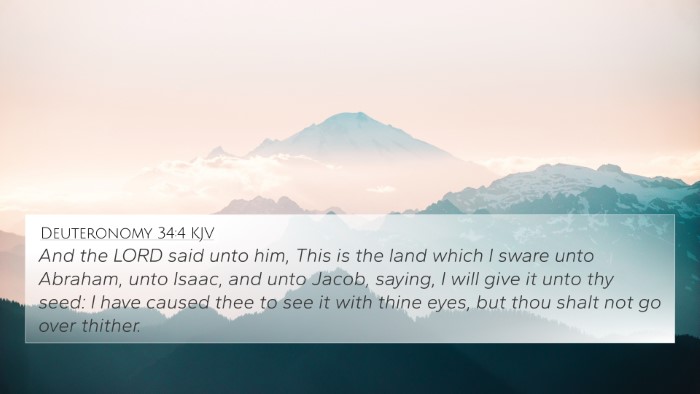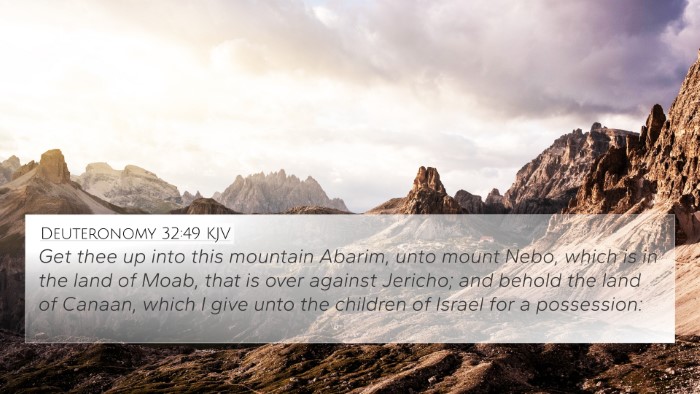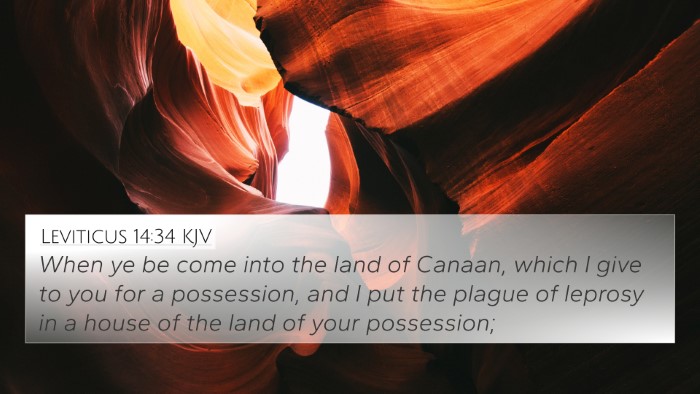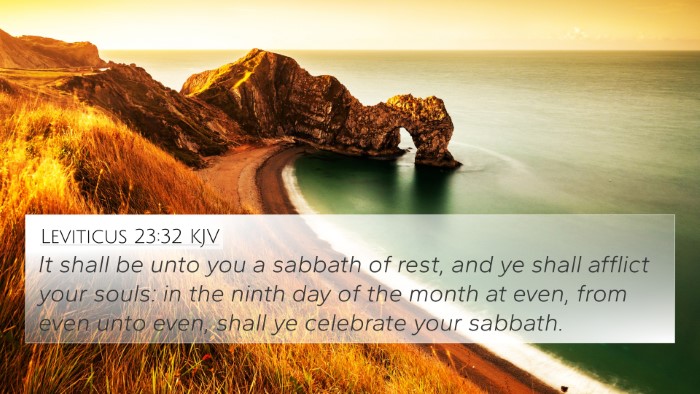Understanding Leviticus 25:2
Leviticus 25:2 states, "Speak unto the children of Israel, and say unto them, When ye come into the land which I give you, then shall the land keep a sabbath unto the LORD." This verse introduces the concept of the Sabbath year for the land, an important principle reflecting God's ownership over the land and His desire for rest and restoration.
Contextual Background
The book of Leviticus serves as a guide for the Israelites regarding worship and community life. It emphasizes holiness and obedience to God. Leviticus 25 is situated within the laws concerning the Sabbatical year and the Year of Jubilee, intended to demonstrate the importance of rest and renewal both personally and for the community.
Meaning and Interpretation
The directive to let the land rest every seventh year signifies more than agricultural prudence; it embodies a spiritual lesson about reliance on God. Here are some key insights derived from respected public domain commentaries:
-
Matthew Henry: Henry indicates that the Sabbath for the land symbolizes God's care for creation and a reminder for Israel to trust in divine provision. In resting the land, the Israelites demonstrated faith in God's promise to provide.
-
Albert Barnes: Barnes elaborates on the covenantal aspect of the land. He argues that the land belongs to God and that the Israelites are merely stewards. By allowing the land to rest, they acknowledge God's sovereignty.
-
Adam Clarke: Clarke points out the benefits of allowing the land to lie fallow, which includes soil replenishment. He also notes that this practice builds community, as it requires cooperation and trust among the people.
Thematic Connections
Leviticus 25:2 creates many thematic connections throughout the Bible. Here are some relevant cross-references that further explore the theme of rest and stewardship:
- Exodus 20:8-11: Remembering the Sabbath day highlights the importance of rest in the life of God's people.
- Deuteronomy 15:1-2: The concept of releasing debts every seven years parallels the theme of grace and forgiveness.
- Psalm 104:14-15: This passage acknowledges God's provision for creation, reinforcing the reliance on divine sustenance.
- Matthew 6:31-33: Jesus teaches about trust in God's provision, echoing the principles found in Leviticus.
- Hebrews 4:9-10: The New Testament references a "rest" for God’s people, linking back to the Sabbath themes from the Old Testament.
- Galatians 6:7: The principle of sowing and reaping aligns with the idea of land stewardship and God's justice.
- James 5:7: Encourages patience and waiting for the precious fruit of the earth, resonating with the idea of land sabbaticals.
Conclusion
Leviticus 25:2 serves as a critical reminder of the relationship between humanity and God's creation, urging the faithful to observe rest not only for their benefit but as an act of worship. The broader thematic connections and cross-references enrich our understanding of God's wisdom in instituting such a practice. Exploring these connections can provide deeper insight into Biblical teachings and principles.
Further Explorations
For readers interested in delving deeper into the connections between Bible verses, utilizing tools for Bible cross-referencing can help uncover layers of meaning and thematic significance throughout the Scriptures. Understanding how verses relate to each other enriches one's study and interpretation of the Bible.
